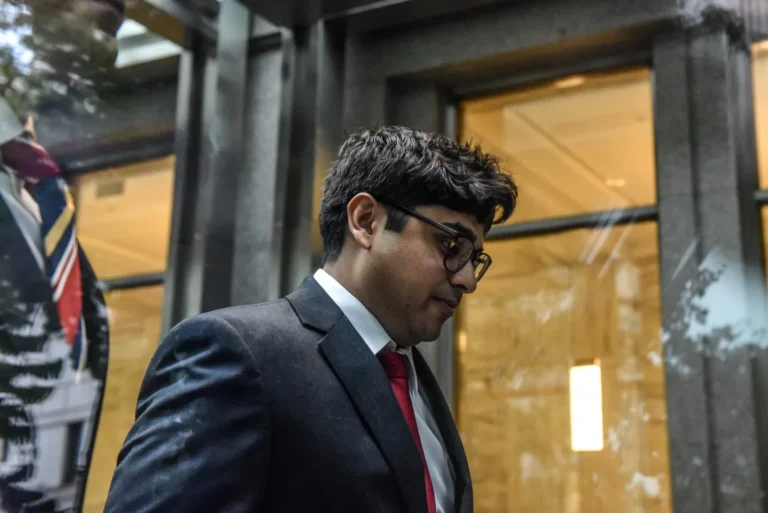Hook: Gary Wang, a crucial witness in the FTX scandal, makes a final plea to avoid jail time, claiming his cooperation was key in bringing down Sam Bankman-Fried. But will the judge agree?
The world of cryptocurrency has been rocked by scandals, and one of the most infamous is the downfall of FTX, a once-dominant crypto exchange. Gary Wang, co-founder of FTX, has found himself at the heart of this chaos. He’s a key figure, and now, with his sentencing approaching, Wang is asking a judge for leniency—hoping he can avoid jail time.
Wang, who played a significant role in FTX’s operations, worked closely with Sam Bankman-Fried, the exchange’s controversial former CEO. He’s admitted to being involved in the huge fraud that saw billions of dollars vanish from customers’ accounts. However, Wang is making his case to the judge in a bid for a lighter sentence. Why? Because he believes that his cooperation with the authorities helped put Bankman-Fried behind bars.
Here’s the breakdown of why this is so significant:
1. Wang’s Cooperation Was Crucial
Wang is asking the judge to give him no jail time, arguing that his testimony during Bankman-Fried’s trial was essential in securing the CEO’s conviction. His information about FTX’s internal systems and fraudulent activities helped the government build its case. For you, the key takeaway here is that Wang’s role was pivotal in the investigation. He was one of the few who provided vital evidence that led to the prosecution of one of the most high-profile figures in crypto.
2. The Plea Deal
Wang has already pleaded guilty to charges of fraud and conspiracy. This means he admitted to helping orchestrate or at least participate in the fraud but is now asking for a lighter punishment in return for his cooperation. The idea behind this is simple: if you help catch the bigger criminals, you get a more lenient sentence.
3. Why Wang Deserves No Jail Time—According to Him
Wang claims he had the “most limited role” in the massive fraud (estimated at $10 billion), pointing out that he was less involved than others like Caroline Ellison (former CEO of Alameda Research) and Nishad Singh (FTX’s engineering director). He also argues that serving jail time would be unfair, especially when compared to the others who got more lenient sentences. Remember, this is a tactic often used in legal cases to reduce one’s sentence by comparing their actions to others.
4. The “Good Guy” Defense
Wang has been presenting himself as someone who was deceived by Bankman-Fried. He says he didn’t fully know about the fraud when it started and only found out later, which he claims is why he deserves a lighter sentence. This idea that he was “misled” is central to his defense. It shows the importance of understanding “intent” in legal cases: was Wang just a bystander, or was he truly part of the conspiracy?
5. Wang’s Future Plans and the Family Angle
Beyond the courtroom, Wang has also painted a picture of himself as someone who wants to turn his life around. He’s expecting a baby with his wife and wants to continue helping the government build software to track fraud, particularly in the crypto world. This personal angle is meant to show the judge that Wang’s life is more than just a mistake—he’s trying to make up for it.
Why This Is Important for You:
- Learning the Impact of Cooperation: Gary Wang’s case highlights the importance of cooperation in legal cases, especially when it comes to uncovering massive crimes. In the world of crypto, where fraud can often go undetected, Wang’s cooperation with the government is a crucial step in fighting financial crime. This teaches us the power of whistleblowing and how it can influence the outcome of major investigations.
- Understanding Plea Deals and Legal Tactics: Wang’s defense strategy shows how plea deals work in real life. When someone is facing serious charges, they might agree to testify or cooperate in exchange for a reduced sentence. It’s a key part of criminal law, and it’s good to understand how these deals can shape the outcome of a case.
- The Role of Tech in Crime Prevention: Wang’s involvement in building tools to track fraud is an interesting development. It’s not just about dealing with the aftermath, but also using technology to prevent future scams. This connects to the growing role of tech in law enforcement and financial security—something to consider if you’re interested in the intersection of crypto and cybersecurity.
Key Terms to Remember:
- Plea Deal: An agreement in which a defendant pleads guilty to a charge in exchange for a lighter sentence.
- Whistleblower: Someone who exposes wrongdoing, especially in a corporate or legal setting.
- Conspiracy: A secret plan by a group to do something illegal.
- Fraud: Wrongful or criminal deception to gain something, often money, from others.
By understanding this case, you’re getting a look into the complex world of crypto crime, legal negotiations, and the technology behind it all. It’s not just about what happened with FTX—this case teaches you about how justice works in high-stakes financial crimes, and why your knowledge of these systems could make a difference in the future.



